Landlord HMO responsibilities
Landlord responsibilities relating to Houses in Multiple Occupation (HMOs)
Landlord responsibilities
- Landlords of HMOs need to be aware of the Regulations governing the management of HMOs.
- They should also have an understanding of the Housing Health and Safety Rating System (HHSRS) which the council uses to assess rented properties, the requirement for licensing and the councils powers in relation to all types of HMO. Further information can be found in the Private Sector Housing Policy Framework which should be read in conjunction with the latest Housing Act Notice Charges document.
- There are also minimum requirements for space and amenities in HMOs which are outlined in the Private Sector Housing Policy Framework below.
- Landlords of HMOs need to be aware of the Regulations governing the management of HMOs.
- They should also have an understanding of the Housing Health and Safety Rating System (HHSRS) which the council uses to assess rented properties, the requirement for licensing and the councils powers in relation to all types of HMO. Further information can be found in the Private Sector Housing Policy Framework which should be read in conjunction with the latest Housing Act Notice Charges document.
Management regulations
The Management of Houses in Multiple Occupation (England) Regulations 2006 and The Licensing of Houses in Multiple Occupation (Additional Provisions)(England) Regulations 2007 apply to all HMOs whether or not they require a licence and impose a number of duties on the manager of the property including:
- providing information to the occupiers: to include name, address and telephone number of the manager to each household AND clearly display this information in the property.
- undertaking safety measures: ensuring proper fire safety measures are in place, fire safety equipment is properly maintained and escape routes are kept free from obstructions. Keep a record of maintenance works and fire alarm system tests.
- supply and maintain gas: gas safety checks must be carried out annually by a qualified Gas Safe engineer. Keep a record of maintenance works and inspections of gas and electric appliances and installations.
- maintain water supply and drainage: including protecting pipes from frost damage and preventing contamination of water supply.
- maintain common parts, fixtures, fittings and appliances: all must be kept clean, safe, in good decorative repair and working order and free from obstruction. Particular attention should be given to handrails, banisters, stair coverings, light fittings, windows and other means of ventilation. This also includes gardens, yards, outbuildings, boundary walls/fences and gates. Adequate cooking and washing facilities must be provided.
- maintain living accommodation: internal structure of each room to be kept in good repair. Each room and all supplied furniture should be in a clean condition at the beginning of the tenants' occupation.
- provide waste disposal facilities: provide sufficient suitable waste bins having regard for the Councils collection service - for further information see the Operations and Waste service
- supply and maintain electricity: all fixed electric installations must be inspected and tested by a qualified engineer at least once every 5 years (sooner if stated on the previous report) and an electrical installation condition report (EICR) obtained. This is a requirement of the Electrical Safety Standards in Private Rented sector (E&W) 2020. In addition to inspecting and testing the existing installation, a record of any new installations and minor works/maintenance must also be kept. Where supplied, visual inspections/tests of electric appliances are also required
The Regulations require that specified standards of management are achieved and maintained. If a manager fails to meet these standards, the Council may prosecute immediately, with an unlimited fine on conviction for each breach of the Regulations.
Housing Health and Safety Rating System (HHSRS)
Under the Housing Act 2004 Part 1 Local Housing Authorities assess risks in HMOs using HHSRS. This assesses 29 potential risk and classes them as either Category 1 (serious) or Category 2 (less serious). Further information can be found in the Private Sector Housing Policy Framework which should be read in conjunction with the latest Housing Act Notice Charges document.




